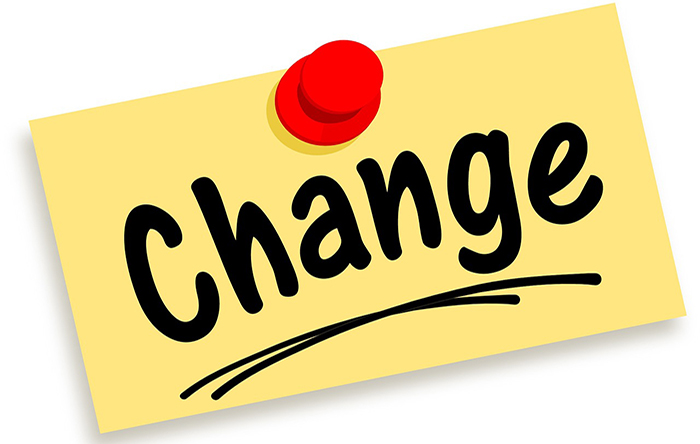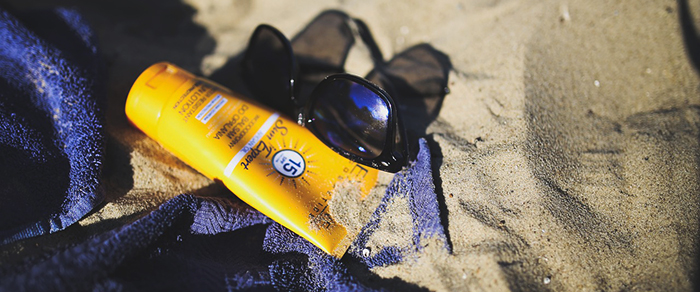
You’re home alone and you walk into a dark room. What do you do?
You flip a light switch. Duh.
But what if an electrician moved the location of that switch this morning? Would you reach for the new location?
Nope. Not yet. You’ll reflexively reach for the old location until you break that habit — despite the fact that you know better. Why?
Habits are more powerful than memory or knowledge. Successful people use this to their advantage. Here’s how.
____________________________________
I want to wear sunblock daily. But when I leave home, I’m distracted: “Do I have my keys? Wallet? Phone? Do I need a jacket? How’s traffic?” Sunblock is the last thing on my mind.
There’s a biological basis for this: limited cognition. Our brains aren’t equipped to monitor the weather, plan the best driving route and remember the sunblock. We can only focus on a few things.
This isn’t laziness. This is how our brains are wired. Here’s why that matters:
If we want to change some aspect of our lives, we need to stop relying on memory, motivation and willpower. Instead, we need to create habits that stick.
But how?
How an Unlikely, Ordinary Man Shocked Scientists with This Habit
This story, told in my own words, is from The Power of Habit by Charles Duhigg:
In 1993, a man from San Diego named Eugene Pauly fell victim to a disease called viral encephalitis. It damaged the section of his brain that forms new memories.
Eugene could still walk, talk, change clothes and even cook. But he couldn’t create new memories. He’d repeat the same sentence over and over, forgetting he had just uttered those words a few moments earlier. He didn’t recall getting sick. He couldn’t recognize his grandchildren.
Eugene and his wife moved to new house to be closer to their adult daughter. Eugene couldn’t form new memories of the layout. His wife guided him everywhere.
But something strange happened. Despite his lack of memory, Eugene started learning his way around the new house. When he felt hungry, he’d open the pantry and grab a jar of nuts. When he felt bored, he’d walk into the living room and turn on the television.
But when doctors asked Eugene to provide directions to the kitchen, he’d draw a blank. He couldn’t explain how to get to the kitchen. He couldn’t draw a map.
What happened?
As it turns out, Eugene didn’t “memorize” the layout of his home. He developed habits, which are stored in a different part of the brain.
The brain develops reflexive shortcuts, habits, to preserve our mental energy. Habits trump memory and conscious thought; that’s why we reflexively flip a light switch when we walk into a dark room.
When we work with our brain’s natural tendencies, we can create stronger, faster, more effective results. The best way to accomplish anything is through “mindless” — automatic, reflexive, ingrained — habits.

How to Create Habits That Stick
Back to the sunblock dilemma.
When I leave home, my brain is occupied with dozens of distractions. I’m unlikely to “remember” to wear sunblock. Instead, I need to develop a habit — and this starts with finding a trigger, or cue. But how?
Let’s start with the current reality. I’ve already established two habits:
- I grab my housekeys before I leave home.
- I wear sunblock when I hold the bottle.
Great. How can I build on this?
I can store my housekeys next to the sunblock. I can’t grab one without seeing the other.
Soon those two items — keys, sunblock — link together in my mind. One triggers the other. They’re associated in my mind. After a few weeks, applying sunblock is as reflexive as locking the door.
Success.
This may sound like a small victory. But building a successful, happy life is nothing more than a series of small victories that accumulate over time.
Here’s my challenge to you:
- What habit would you like to form? Flossing? Exercising? Meditation? Reading?
- When and where would you like to perform these habits? Be specific.
- What routines are already established at that time and place?
- How can you link this new habit to your established routines?
Here’s an example:
- Goal, Vague: “I’d like to learn how to invest.”
- Goal, Specific: “I’d like to read one article about cash-flow-focused real estate investing every weekday evening before dinner.”
Great. Let’s examine your current routines.
- “I walk my dog before dinner.“
- “I read articles on my iPad.”
Okay, that’s a good start. But you don’t walk your dog before dinner. You RETURN HOME from walking your dog. What happens next?
- “I put the dog’s leash in a drawer.”
- “I wash my hands in the hallway bathroom.”
- “Then I go to the kitchen.“
Excellent. Let’s brainstorm ways we can connect those dots.
- Idea #1: “I keep my iPad in the dog leash drawer.“
- Idea #2: “I keep my iPad in the hallway bathroom.“
- Idea #3: “I keep my iPad on the kitchen counter.”
Perfect.
You’re linking a desired new habit into an existing routine. See why that works? This is how to create habits that stick.
__________________________
You might be thinking: “Who cares? You read one article a day. Big deal.” But in 4 months, you’ll read 100+ articles. You’ll have more judgment and confidence to make that investment, start that business, or launch that thrilling new project.
That’s not all. Over time, you’ll develop more than just a reading habit or an exercise habit. You’ll build a habit of developing habits.
And that’s the most effective way to convert your goals into results.